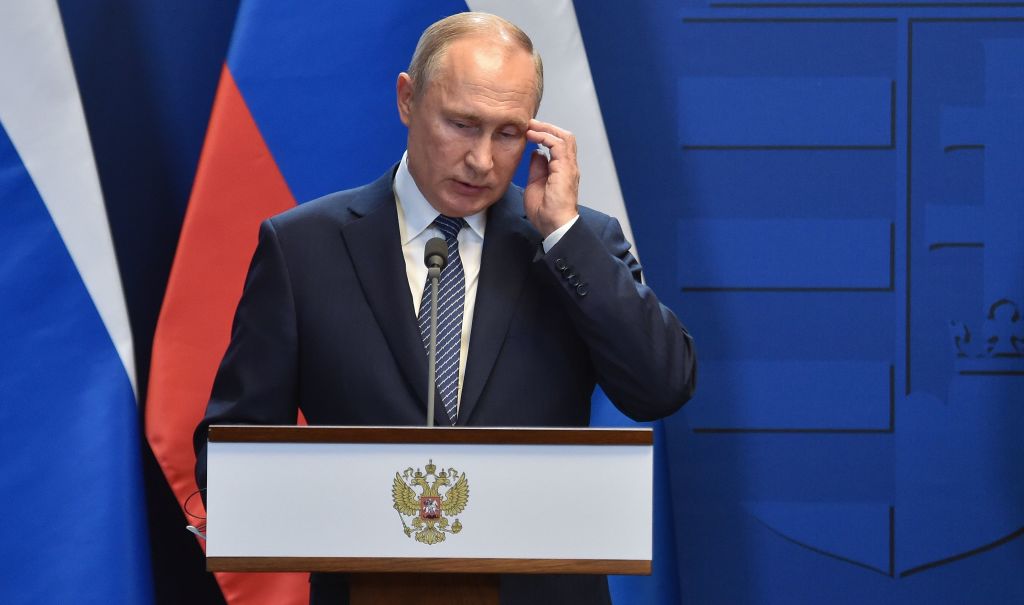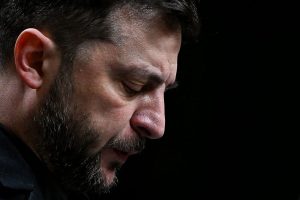As the Ukraine crisis continues to develop, it has become impossible to avoid mentioning Georgia and its relations with the West. This is not only due to the similarities in the two countries’ geopolitical circumstances, but also because Georgia is explicitly mentioned with Ukraine in President Putin’s demands to the West to forego any future NATO expansion.
Like Ukraine, for years, Georgia has sat in the uncomfortable position of being pro-Western without enjoying the protections afforded by membership in both NATO and the European Union. Yet a country that was once a staunch Western ally has become mired in accusations of authoritarianism, behind-the-scenes governance, and covert pro-Russian sentiment.
Georgia and Ukraine have occupied a unique position in the post-Soviet space. Unlike Poland and the Baltic countries, they have yet to be granted membership in Brussels’ increasingly exclusive geopolitical clubs, but nor are they members of Russia’s equivalents of NATO (the Collective Security Treaty Organization) and the EU (the Commonwealth of Independent States).
Yet on the path to Westernization, the Georgians were considered to have made greater progress than their Ukrainian allies, a result of the country’s earlier transition to the Western course and its more strident measures in tackling corruption. The bloodless Rose Revolution of 2003 was followed by significant American investment, as well as assistance in modernizing its military forces, which later became the largest contributor per capita to NATO’s mission to Afghanistan: 280 Georgian soldiers were seriously wounded and 32 killed. Along with supporting Western-educated, democracy-oriented leaders, Washington and Brussels were also keenly aware that Georgia is home to the middle section of the Baku-Tbilisi-Ceyhan pipeline — the only Caspian oil pipeline outside of Iranian or Russian control.
However, despite the first democratic peaceful transition of power in the country’s history in 2012, which was followed by the signing of a landmark free trade deal with the European Union and a visa liberalization scheme with the Schengen Zone, recent years have seen small cracks in Georgia’s relationship with the West become greater rifts.
The myriad reasons behind this have had an accumulative effect. But the result is that the West stands to lose its only ally in the strategically vital and resource-rich South Caucasus, the other two countries — Armenia and Azerbaijan — being aligned with Russia and Turkey respectively.
The ongoing Ukrainian crisis has been particularly revealing as to how both Georgia’s politicians and their Western partners have failed. Georgian politicians have been consistently accused of democratic backsliding, and their growing inability to take any Western criticism has resulted in angry exchanges between senior government officials and resident diplomats. It’s a far cry from the days when any utterance from a Western embassy was met with rapturous praise.
Indeed, matters have devolved to the point that the chairman of the incumbent Georgian Dream party dismissed US Ambassador Kelly Degnan’s credentials after she criticized the government’s backtracking on commitments made to EU-brokered constitutional changes.
This was followed by the abolition of the State Inspector’s Service, an independent state body responsible for investigating possible abuses of power. Earlier in 2021, Prime Minister Gharibashvili felt the need to declare that “MEPs are not my bosses” after the EU stated it needed to “reconsider its relations with the Georgian government” following the collapse of another Brussels-negotiated deal between the Georgian Dream government and the parliamentary opposition.
These events have been coupled with senior public figures’ tepid declarations on Russia. The previously characteristic anti-Moscow rhetoric has been replaced by more measured language. Conservative factions in Georgia — some of whom openly push for reconciliation with Russia — have highlighted that the shared Orthodox Christian faith of the two countries makes Russia a more natural partner than Europe.
The Georgian Orthodox Church has certainly played a role in this, with the clearest evidence of factions within the Church harboring pro-Russian sentiments coming in 2019. An MP from the Russian Communist Party, Sergey Gavrilov, visited Tbilisi as part of the Inter-Parliamentary Assembly on Orthodoxy, during which he was invited to occupy the seat of the Georgian speaker of parliament. The riots that followed resulted in almost 300 injuries and the arrest of opposition leader Nika Melia.
This week, when asked by reporters if the Church was praying for peace in Ukraine, an Orthodox Church representative evasively replied “We always pray” — refusing to explicitly name and condemn Russia. The Church remains a potent socio-political force in the country, with its leader, Patriarch Ilia II, trusted by 89 percent of the national population. Liberal factions have long considered the Church’s influence over public opinion a danger to Georgia’s Western aspirations.
While the Georgian government has publicly stated their support for their Ukrainian allies, they have been cautious in explicitly naming Russia as the aggressor. A tweet from the Georgian foreign minister with a supportive message for Kyiv caused opposition leader Giorgi Kandelaki to respond with “Georgian FM tweets support to Ukraine without mentioning Russia, as if it is Vanuatu threatening to invade Ukraine.”
This is in keeping with the rest of the government’s conduct. Neither Prime Minister Irakli Garibashvili nor President Salome Zurabishvili have spoken with their Ukrainian counterparts, and a statement of support for Ukraine has yet to be made. Insistence from the Georgian foreign minister and the parliament speaker that they support the Kyiv authorities appears weak when the country’s top officials refuse to make similar statements of their own.
Yet while one could plausibly accuse some senior Georgian figures of the usual litany of offenses leveled at politicians in the former Soviet Union — namely being self-serving, corrupt, and possibly pro-Russian — the West must bear some of the blame too. Although Georgia may not have yet reached EU membership standards, it was ready for NATO membership a number of years ago, as both former leader of the US military European Command Philip Breedlove and erstwhile NATO leader Anders Fogh Rasmussen have stated. Regrettably, the two men made their remarks only after their time in office was over.
Membership in the alliance has been consistently denied due to Georgia’s occupied territories, which it will never retake without NATO military support — which it cannot get until it has the two territories back. This contradictory cycle has yet to be adequately addressed. It’s also worth pointing out that West Germany was a NATO member even when the West still considered the communist East to be an occupied zone.
The continued delays and endless excuses in granting NATO membership have made some Georgian politicians lose faith in the alliance. And while the West’s hesitance to provoke Russia is entirely understandable, it is not strategically advisable. Azerbaijan is firmly aligned with Turkey, and Armenia with Russia; the West cannot afford to lose its hold of influence in Georgia. And while Moscow has been willing to throw its military weight around in Ukraine, Georgia, and Syria, the Kremlin has been careful not to unduly provoke NATO states. Conflicting ideas over external threats has certainly weakened NATO’s standing, but membership clearly still provides the protection that Georgians and Ukrainians crave.
The West has lost the strategic initiative in the Black Sea region, but it is not too late to regain it. Giving a concrete timeframe of acceding to NATO membership for Georgia would not only reinforce the West’s position in a vital and contested area. It would be a strong message to Georgia, Ukraine, and Russia that Washington and Brussels will stand by their political and moral convictions. Simmering pro-Russian sentiment in Georgia would gain no further traction if the country was finally admitted into NATO.
Proof for Georgia, hope for Ukraine, and a warning for Russia — three aspects currently lacking from the West’s conduct in Eastern Europe, but all of which are sorely needed.

























